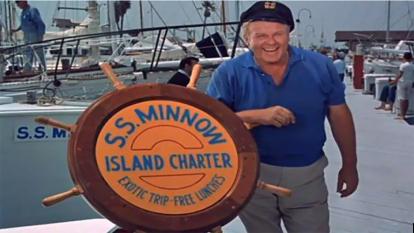Loretta Lynn Would Have Been 91 Today — Here’s Her Remarkable Story (That Still Inspires)
Her humble beginnings.

April 14 marks what would have been Loretta Lynn’s 91st birthday. Although her passing in 2022 left the music world shaken, Loretta Lynn’s story is writ large in the pages of country music history. But her story would be almost unbelievable if she hadn’t lived it herself. In fact, she was the little girl she sang about in her 1970 hit, “Coal Miner’s Daughter” — raised in the small mining town of Butcher Hollow, high in the Appalachian hills of eastern Kentucky.
For a long time, the exact date of Loretta’s birth was a subject of debate. In her 1976 autobiography, Coal Miner’s Daughter, she claimed to have been born a few years into President Franklin D. Roosevelt’s administration, but refused to cite the year. “I’m trying to make a living singing songs,” she wrote. “I don’t need nobody out there saying, ‘She don’t look bad for being such-and-such years old.’” For decades, the year was commonly held to have been 1935 — until, that is, birth records dug up in 2012 proved the date to be April 14, 1932.
A Humble Upbringing
Loretta Webb was the second of eight children of Melvin and Clara Webb. They were known to most as Ted and Clary. Both grew up in Butcher Hollow — or “The Holler,” in local parlance. The closest town was 5 miles up the road, Van Lear, which was set up early in the 20th century by the Consolidated Coal Company that owned the houses, the general stores, and even the post office. There were five coal mines in the area, each of which ran around the clock.
Ted was a logger before the stock market crash and onset of the Great Depression. Then, he found work through President Roosevelt’s Works Progress Administration. The family was so poor that when Loretta was born, her mother chose not to go to the hospital, knowing they couldn’t afford the bill. She gave birth in the Webbs’ one-room cabin, with the help of a neighbor. As a child, Loretta — who was named for Clary’s favorite actress, Loretta Young — fell gravely ill on multiple occasions, including bouts of mastoiditis and black measles.
Her Father’s Impact
Her father eventually got a job working the night shift in one of the mines. This allowed the Webbs to move into a larger, four-room cabin farther down the Holler. But it was grueling work. The mines were so narrow that the workers couldn’t stand up straight, usually having to crawl on hands and knees to do their jobs. Explosions were frequent, as were deaths on the job. All the while, they breathed in coal dust that coated their lungs and caused illness. Ted’s back and knees were wracked with pain and he suffered from chronic headaches, nosebleeds, and coughing fits. “I feel real proud of Daddy for working in the mines,” Loretta wrote. “He kept his family alive by breaking his own body down. That’s the only way to look at it.”
Eventually, it killed him. When Ted, still only in his forties, suffered a stroke on the job, he was fired. He tried resettling the family in Wabash, Indiana — by which point Loretta had long since married and moved out — but died of black lung disease in 1959, at the age of 52. His and Loretta’s bond stuck with her throughout her life. “I think Daddy is the main reason why I always had respect for myself when times got rough,” she said. Years later, she paid tribute to him with the 1974 hit song, “They Don’t Make ’Em Like My Daddy,” written by Jerry Chesnut.
Finding Joy in the Simple Life
When Ted wasn’t in the mines, he spent his days as a subsistence farmer, raising chickens or hogs. Loretta and her sisters wore flour sack dresses fashioned by her mother. They ate meals like possum or squirrel with biscuits and gravy. There was no running water, no electricity, and the walls were decorated with newspaper.
One Christmas, Loretta remembered her father only having 36 cents to spare, but still bought gifts for all the kids. Yet the Webbs lived a happy enough existence, cut off as they were from the outside world. “I was never ashamed of not having an education,” Loretta said in Finding Her Voice: The Saga of Women in Country Music. “There was nothin’ I could do about it. If there’d a-been something I coulda done about it, then I’d a-been ashamed.”
The family sang songs together in the evenings, and after World War II, Ted saved up enough money to buy a Philco radio — though he insisted they save the batteries for Saturday nights, when he’d be home and they could listen to broadcasts of the Grand Ole Opry from Nashville. As the eldest daughter, Loretta helped Clary to raise her brothers and sisters. She often sang songs to her younger siblings as she rocked them to sleep on the front porch.
Loretta’s New Husband
That hard, simple mountain life changed forever when Oliver “Doolittle” Lynn came along. Though six years her senior, he quickly fell for Loretta and asked her to marry him — even though, at the time, she was only 15 years old. “You be good to my little girl,” warned her grandfather, a full-blooded Cherokee, “or I’ll kill you.” Ted, though heartbroken by the news, agreed to the marriage on two conditions: That Doolittle would never hit his daughter, and never move her far away from the family. In short order, Loretta’s new husband was to break both of those promises.
A version of this article appeared in our partner magazine Loretta Lynn.













